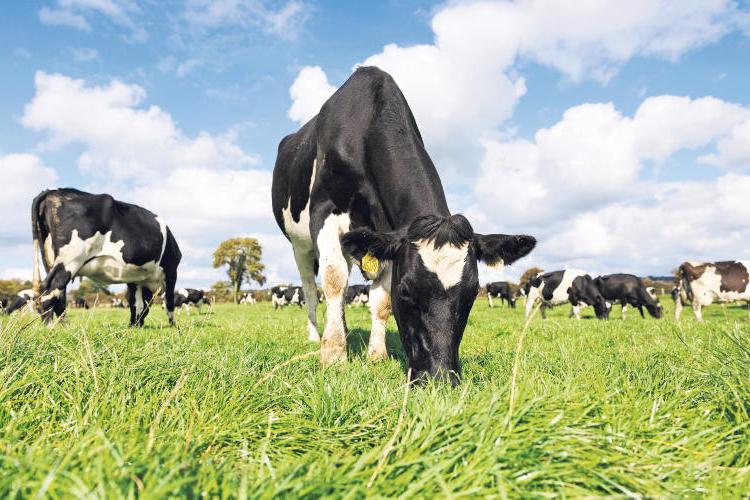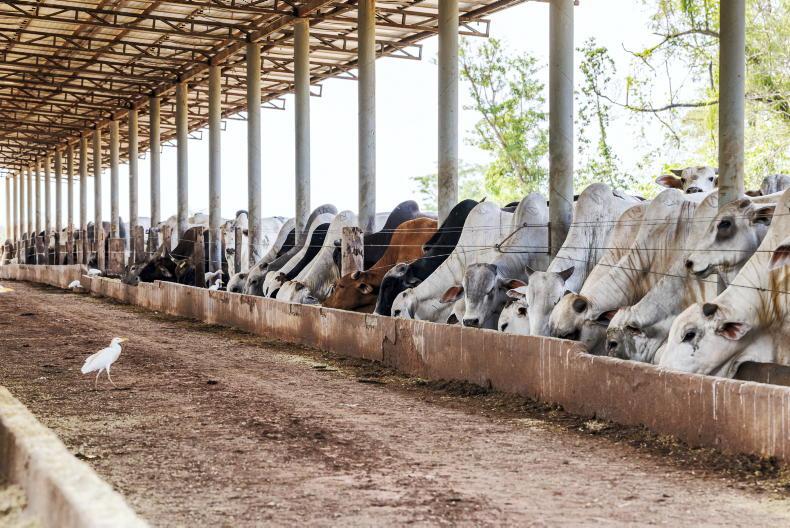From a plethora of whiskeys to Irish stew, boxty, or the humble bacon and cabbage, Irish food and drink is basking in the ‘green’ spotlight this month as St Patrick’s Day festivities approach.
With household food and drink consumed in Ireland valued at €10 bn a year, according to figures from the Central Statistics Office (CS0), many shoppers want to support Irish.
However, with so many foods and different labels giving consumers all kinds of information, it can be difficult.
Labels provide essential information about the characteristics of the products and are governed by Irish and EU laws. “Food information must be accurate, clear, and easy to understand for the consumer. It must not be misleading,” according to the Food Safety Authority of Ireland.
Scrutinising labels has become a fashion on Instagram in recent times but don’t forget the basics. Prepacked foods must include the weight, ingredients, nutritional value, country of origin, storage information, allergen warnings, usage instructions, net quantity and a use-by date.
Where the country of origin of a food is given and where it is not the same as the primary ingredient, then the FSAI says the origin of the main ingredient must be detailed. For example, if the origin of a chicken curry is declared as Irish on the label but the chicken is not Irish, then it is a legal requirement to specify its origin clearly.
Produced in/Packed in Ireland
Other phrases you will notice on your food products are ‘Produced in Ireland’ or ‘Packed in Ireland’. The declaration ‘produced in’ is considered an obvious origin indication for consumers, according to the FSAI, and this label can be used when the food is grown, made and produced in this country.
However, the term ‘Packed in’ is different, and is not an indication to consumers of where the food comes from. It is simply stating that the product was ‘packed’ here, and the ingredients may originate elsewhere.
Another label that can be confusing is ‘Product of Ireland,’ – this does not necessarily mean that it is produced in Ireland. According to the Food Writers Guild of Ireland, the meat may be from outside the country, but simply processed and packaged here.
‘Produced for’ an Irish company or supermarket is another phrase you’ll commonly see, and this might lead you to think it is Irish.
A quick perusal of cheese products in the supermarket fridge illustrates the conundrum that shoppers face. Cheese can be produced for a major Irish supermarket chain; however, the tiny oval EU label at the bottom may have another symbol beside it, such as the DE symbol, which then means it comes from Germany. This mark is only on meat and dairy products.
The situation becomes trickier when you factor in the use of popular marketing terms and nutritional claims on packaging. But this guide will help you while doing your food shop.
Understanding the terms
Artisan: The terms ‘artisan’ should only be used if the food is made in limited quantities by skilled craftspeople using local ingredients in a micro-enterprise, which is defined as a business employing less than ten people with a turnover of less than €2m.
Farmhouse: This term should only appear on a food label where the product is made in a single location on a farm by a micro-enterprise. In addition, the main ingredient used in the product, for example, the milk in cheese, should be produced locally.
Traditional: The use of the term ‘traditional’ should only be utilised if the produce is made using an authentic recipe that has existed for at least 30 years.
Natural: A minimally processed single-ingredient food can be called ‘natural,’ provided it is formed by nature and is not significantly interfered with by man by the use of additives, flavours and colours.
Is it guaranteed?
One thing that consumers can do to support local food companies is to purchase those with quality assurance marks meeting a strict set of standards.
Bord Bia Quality Mark: Bord Bia operates several quality assurance schemes. The best known is the Quality Mark, which means the product, for example, meat has been produced in accordance with required standards.
The flag and the use of ‘Origin Ireland’ on the mark verifies that the product was fully farmed and slaughtered in the Republic of Ireland. There is another mark for Northern Ireland.
The ‘Grass Fed’ logo is also used for accredited beef products.
There are separate logos for producers who sign up to a Bord Bia quality assurance scheme where their product ingredients make up 90% of the finished product, or another product ingredients make up less than 90% of the finished product.
Fruit and vegetable growers, packers and processors can also become certified members of Bord Bia.
National Dairy Council: In 2009, the National Dairy Council (NDC) introduced a packaging mark giving consumers the reassurance of knowing that if they buy milk or cream with the NDC Guarantee, it is 100% farmed and processed in the Republic of Ireland.
Organic: The EU organic logo can only be used on products that have been certified as organic by an authorised control agency or body.
Three bodies – the Irish Organic Association (IOA), the Organic Trust and Global Trust Certificate Ltd (aquaculture) are accredited by the Department of Agriculture to inspect and certify farms and produce as organic in Ireland.
This means that they have fulfilled strict conditions on how they must be produced, processed, transported and stored. The logo can only be used on products when they contain at least 95% organic ingredients and additionally, respect further strict conditions for the remaining 5%.
Guaranteed Irish: With 2,000 businesses on its books, the award is given to firms that support sustainable jobs, contribute to local communities, and are committed to Irish provenance where they have been trading here for at least two years. In addition, at least 50% of added value is derived here.
Love Irish Food: When you see this label, it means that 80% of the value of their member products must be produced in the Republic of Ireland using available local ingredients.
Good Food Ireland: The marketing brand is an all-island standard that gives recognition to commitment to local Irish food and drink, supporting farmers, food producers and fishermen.









SHARING OPTIONS